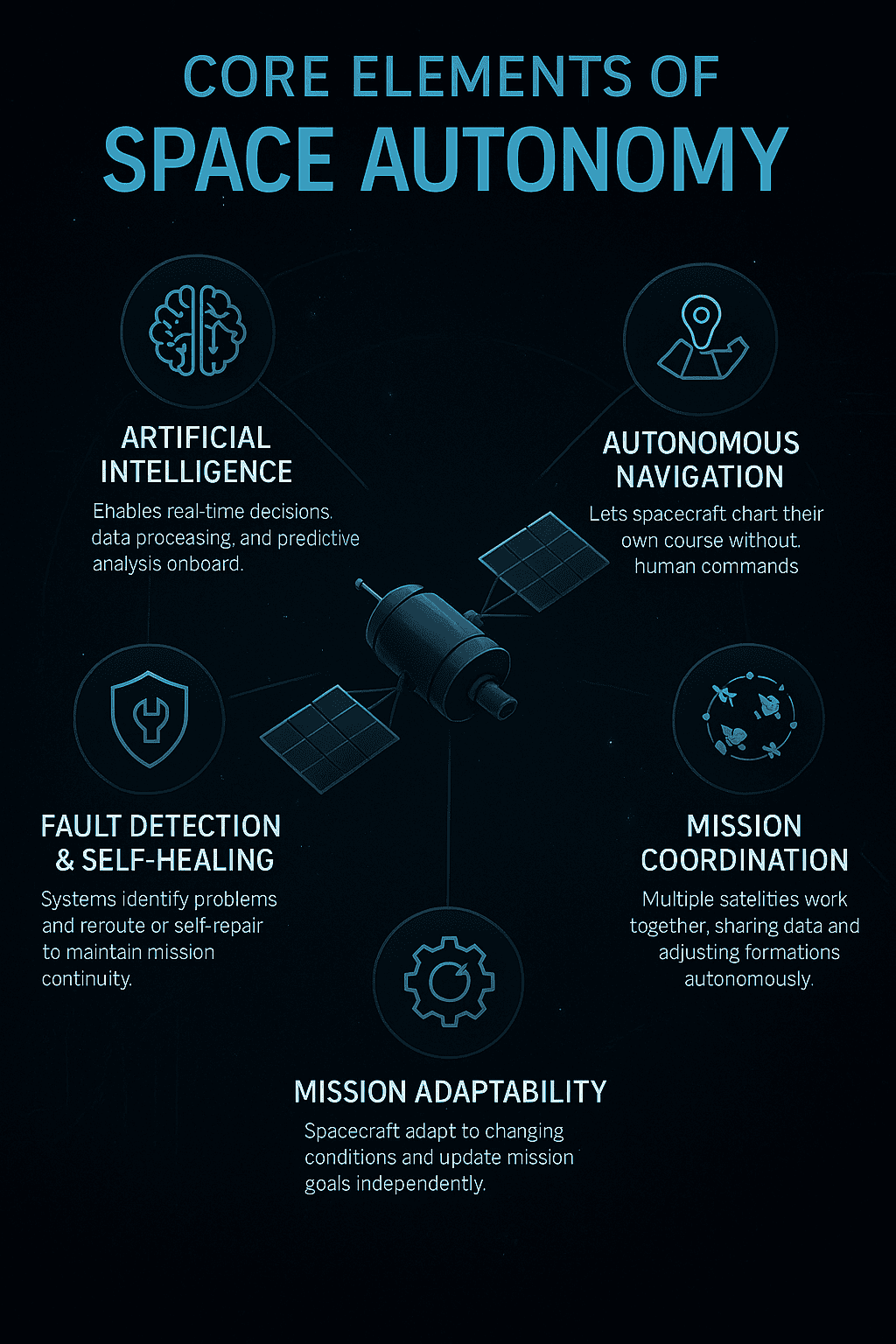
Space autonomy refers to the ability of space systems—such as satellites, spacecraft, and drones—to operate independently or with minimal human intervention. These intelligent systems are powered by onboard software, artificial intelligence, and advanced decision-making algorithms, allowing them to perform complex tasks, adapt to changing conditions, and continue missions even when contact with Earth is lost or delayed.
Why It Matters
As we enter a new era of space exploration, global security, and satellite-enabled infrastructure, autonomy is no longer optional—it’s essential. Space autonomy empowers systems to:
- React in real-time to threats or challenges
- Optimize performance without human commands
- Continue functioning during communication delays or blackouts
- Scale operations, such as managing large constellations or swarms of satellites
Whether it’s deep space probes, military surveillance satellites, or AI-powered Earth observation platforms, autonomy enables space assets to think, adapt, and survive.
Core Technologies Behind Space Autonomy
- Artificial Intelligence (AI)
Enables onboard decision-making, data analysis, threat detection, and mission optimization. - Autonomous Navigation & Control
Allows spacecraft to determine position, plot trajectories, and make course corrections without ground input. - Fault Detection & Self-Healing Systems
Helps space systems identify malfunctions and either repair or reconfigure themselves. - Swarm Intelligence
Lets groups of satellites or drones coordinate movements and data sharing autonomously. - Autonomous Docking & Landing
Used in space logistics, planetary landings, and spacecraft refueling missions.
Real-World Applications
- Military & Defense: Autonomous satellites for surveillance, electronic warfare, or rapid-strike capabilities.
- Commercial Use: Smarter satellite constellations for internet delivery, climate monitoring, and telecom.
- Exploration: Self-guided rovers and deep-space probes that explore planets, asteroids, or moons.
- Cybersecurity in Orbit: Autonomous systems that detect and neutralize threats to space assets.
The Future of Space Is Autonomous
Autonomy is redefining what’s possible in orbit and beyond. As we push the boundaries of space exploration and national security, intelligent systems will become the backbone of operations in Earth’s orbit, the Moon, Mars, and beyond.
At SpaceAutonomy.ai, we cover the latest breakthroughs, technologies, and geopolitical shifts shaping this autonomous future in space.
S-11